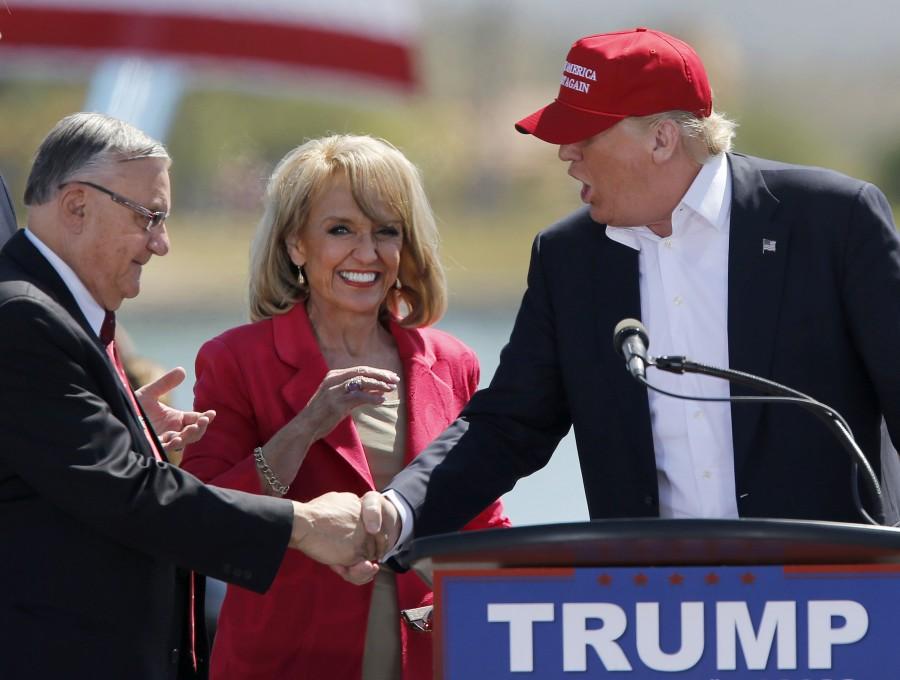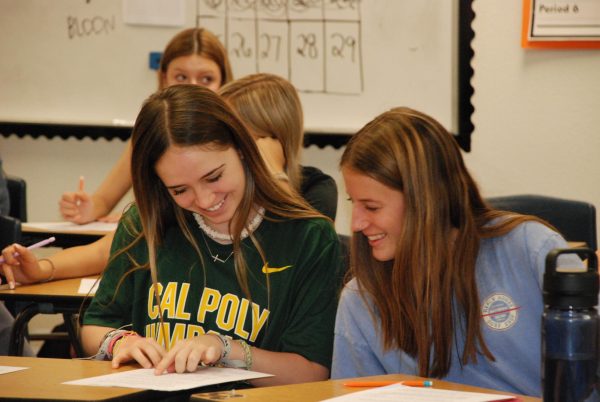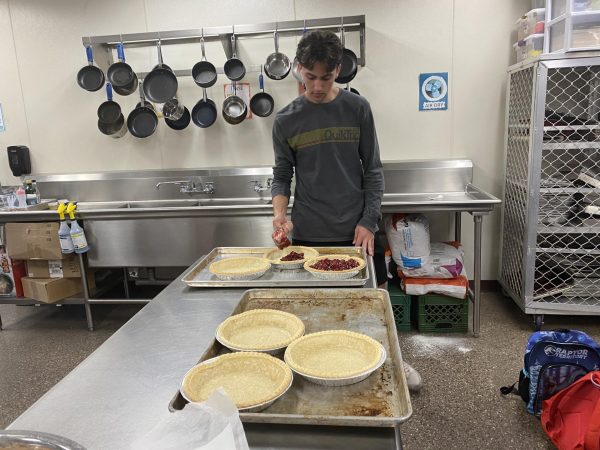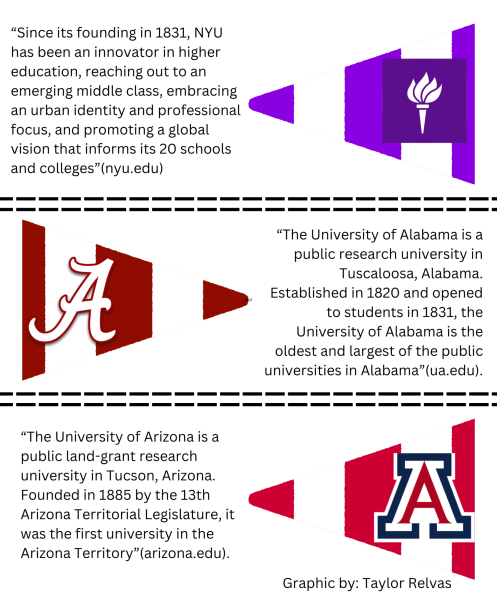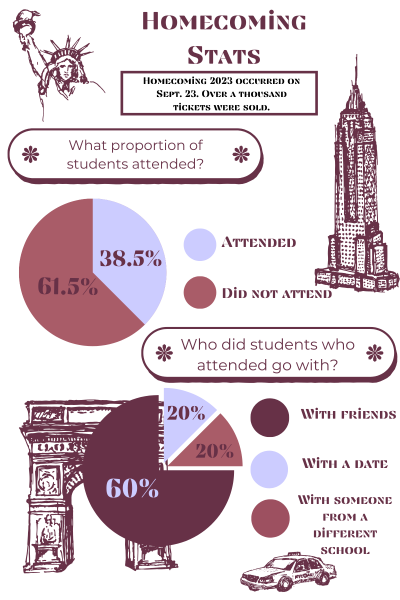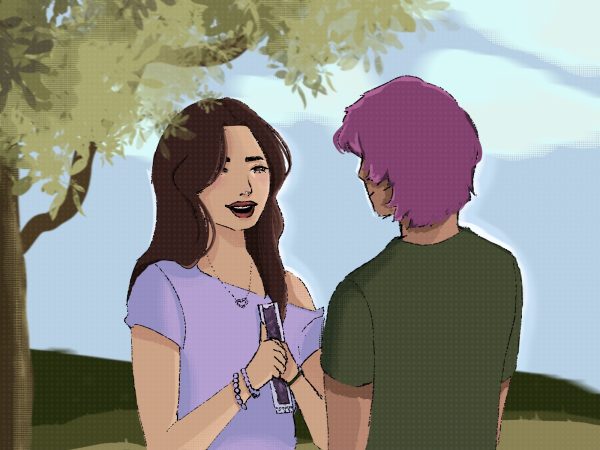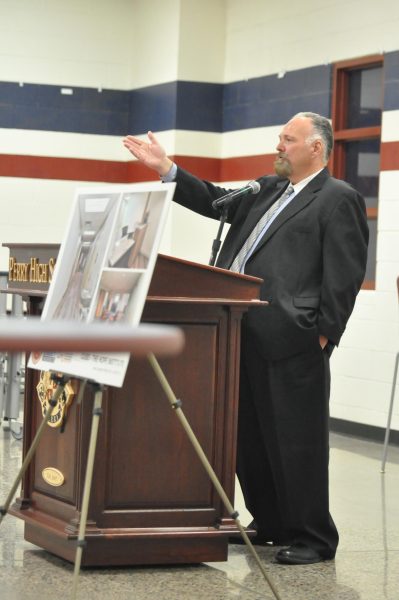Lack of polling locations causes frustration
Maricopa County Sheriff Joe Arpaio, left, and former Arizona governor Jan Brewer, center, greet Republican presidential candidate Donald Trump at a rally at Fountain Park in Fountain Hills, Ariz., on Saturday, March 19, 2016. Arizona holds its presidential primary on Tuesday. (Allen J. Schaben/ Los Angeles Times/TNS)
As it is widely known, April 22 was the Presidential Preference Primary election for Arizona. Many high school seniors had the opportunity to vote for their very first time; considering they recently turned 18. However, most adults living in the Maricopa County may have experienced frustration when arriving at the polling locations – seeing that the lines were unusually longer than normal.
Maricopa County Recorder, Helen Purcell, made the choice of cutting down the amount of polling locations due to wanting to “save money.” Four years ago, Maricopa County had about 200 polling locations and on April 22, we were down to approximately 60 polling locations.
Along with the right to life, liberty, and the pursuit of happiness, comes the right to vote. American citizens participate in voting not only as their right, but as their civic duty to the country. Voting is a main component of democracy. However, complications such as long lines and limited voting ballots prevented and deterred some people from voting this year. While most voters waited it out, some had to leave after hours of waiting.
Kathy Wilson, 75, was concerned about waiting out in the sun for that long, “With the weather so hot and so many senior people like me, this is getting dangerous to stand in these lines for so long in the sun.”
Arizona State University’s Cronkite News interviewed Roopali Desai, an election attorney for local law firm Coppersmith Brockelman. Desai stated, “This [lack of polling location] creates additional obstacles for them because most people can’t take three hours off of work to stand in line and vote.”
She also explained how the lack of polling locations particularly affects underprivileged communications who have little to no transportation. It is not fair for these individuals to not have the chance to vote like any other American citizen.
With one of the biggest voter turnouts in Arizona history, the lack of polling locations was a big complication for the state. Luckily, the precinct cannot be changed for the Nov. 8 Presidential Election; totaling in about 720 polling locations.
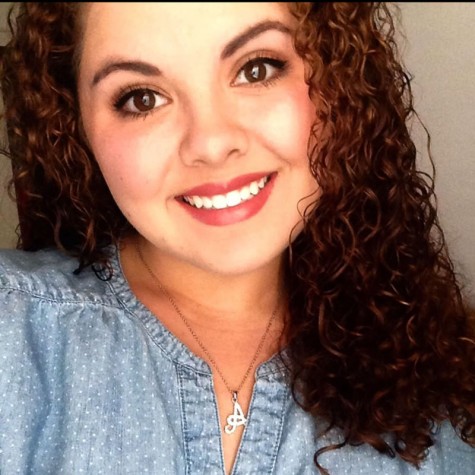
August is a senior at Perry High. She is the opinions editor for this year's Precedent newspaper; this is her second year in newspaper and she hopes...
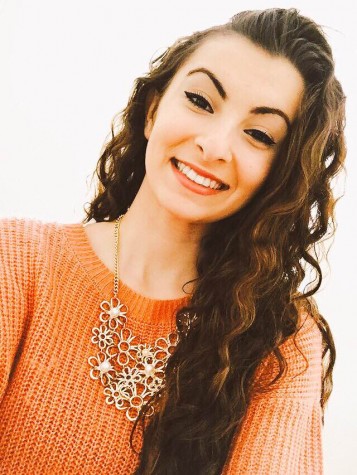
Sam is a first year reporter for the Precedent. She will be covering science, StuGo and tennis. She is very excited to improve as a writer and learn all...

